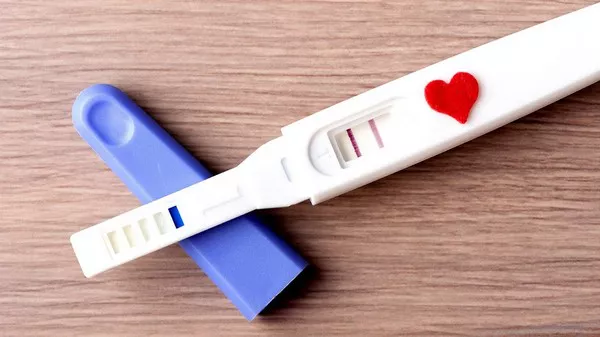The decision to start a family is a significant milestone in many individuals’ lives. For those who have been using birth control, the question of how soon pregnancy can occur after discontinuing contraceptive methods is often a crucial consideration. Understanding the factors influencing fertility and the timelines associated with post-birth control conception is essential for individuals and couples navigating this exciting journey. In this comprehensive article, we delve into the intricacies of fertility, exploring the various methods of birth control, and providing insights into when one can expect to conceive after stopping contraception.
Overview of Birth Control Methods:
Before delving into the timeline of post-birth control conception, it’s crucial to understand the various methods of contraception available. Different methods have distinct mechanisms, and their effects on fertility can vary.
Hormonal Methods:
Hormonal birth control methods, such as birth control pills, patches, injections, and hormonal intrauterine devices (IUDs), work by altering hormonal levels to prevent ovulation and thicken cervical mucus, inhibiting sperm movement. Fertility typically returns rapidly after discontinuation of these methods.
Barrier Methods:
Barrier methods, including condoms, diaphragms, and cervical caps, physically prevent sperm from reaching the egg. Fertility is not affected by these methods, and conception is possible immediately after their discontinuation.
Long-Acting Reversible Contraceptives (LARCs):
LARCs, like the hormonal IUD and contraceptive implants, provide extended protection with minimal user intervention. Fertility can return quickly after discontinuing these methods, allowing individuals to conceive shortly thereafter.
Permanent Methods:
Sterilization procedures, such as tubal ligation or vasectomy, are considered permanent methods of contraception. Reversal procedures may be an option but are not always successful. Therefore, individuals considering these methods should weigh the decision carefully.
See Also: How Birth Control Methods Prevent Fertilization
Timelines for Pregnancy After Discontinuing Birth Control:
The timeline for conception after stopping birth control varies based on the method used. It’s important to note that individual factors, such as age, overall health, and pre-existing fertility issues, also play a significant role in the time it takes to conceive.
1. Hormonal Methods:
a. Birth Control Pills:
Fertility can return quickly after discontinuing oral contraceptives. Many women resume regular menstrual cycles within a month or two, and conception is possible during the first ovulatory cycle.
b. Hormonal Patches and Injections:
Similar to oral contraceptives, fertility often returns promptly after discontinuation of patches or injections. Conception can occur in the first ovulatory cycle.
c. Hormonal IUDs:
Removal of a hormonal IUD typically results in a rapid return to fertility. Women may ovulate within a few weeks, allowing for the possibility of conception shortly after removal.
d. Contraceptive Implants:
Fertility tends to return promptly after removing contraceptive implants. Women may ovulate within weeks, facilitating the opportunity for conception.
2. Barrier Methods:
Barrier methods, such as condoms, diaphragms, and cervical caps, do not have a direct impact on fertility. Conception is possible immediately after discontinuation of these methods.
3. Long-Acting Reversible Contraceptives (LARCs):
a. Hormonal IUDs:
As mentioned earlier, fertility returns rapidly after the removal of a hormonal IUD, allowing for the possibility of conception within a few weeks.
b. Contraceptive Implants:
Similar to hormonal IUDs, fertility typically returns promptly after removing contraceptive implants, enabling individuals to conceive shortly after discontinuation.
4. Permanent Methods:
a. Tubal Ligation:
While tubal ligation is considered a permanent form of contraception, some individuals may pursue tubal ligation reversal procedures if they decide to conceive. Success rates vary, and it may take several months to years to achieve pregnancy after a successful reversal.
b. Vasectomy:
Vasectomy is also considered a permanent method, and reversal procedures are available. Success rates vary, and conception may occur within a few months to years post-reversal.
Individual Factors Affecting Conception:
In addition to the type of birth control used, several individual factors influence the timeline for conception after discontinuation of contraception.
Age:
Age plays a significant role in fertility. Younger individuals often experience a faster return to regular menstrual cycles and higher fertility rates compared to those in their late 30s or early 40s.
Pre-existing Fertility Issues:
Individuals with pre-existing fertility issues may face challenges even after discontinuing contraception. Conditions such as polycystic ovary syndrome (PCOS) or endometriosis can impact fertility and may require medical intervention.
Menstrual Regularity:
The regularity of menstrual cycles post-discontinuation is a key factor. Individuals with irregular cycles may experience delays in ovulation and conception.
Health and Lifestyle Factors:
Overall health, nutritional status, and lifestyle factors such as stress, diet, and exercise can influence fertility. Maintaining a healthy lifestyle can contribute to optimal reproductive health.
Tips for Optimizing Fertility Post-Birth Control:
For those aiming to optimize their chances of conception after discontinuing birth control, several tips can be beneficial:
Preconception Health Check:
Schedule a preconception health check with a healthcare provider to address any potential concerns, ensure overall health, and discuss lifestyle adjustments.
Track Menstrual Cycles:
Monitoring menstrual cycles and ovulation using fertility tracking methods can aid in identifying fertile periods and optimizing timing for conception.
Nutritional Support:
Ensure a balanced and nutritious diet, including sufficient intake of vitamins and minerals essential for reproductive health, such as folic acid.
Regular Exercise:
Engage in regular physical activity, as moderate exercise can contribute to overall health and well-being, potentially enhancing fertility.
Manage Stress:
Stress management techniques, such as mindfulness, yoga, or meditation, can help alleviate stress levels and positively impact reproductive health.
Consultation with a Specialist:
Individuals experiencing challenges in conceiving after discontinuing birth control should consider seeking advice from a fertility specialist. A fertility evaluation can help identify potential issues and guide appropriate interventions.
Conclusion:
The decision to conceive after discontinuing birth control is a personal and exciting journey. Understanding the timelines associated with different contraceptive methods, considering individual factors, and adopting proactive measures to optimize fertility contribute to a well-informed approach. As individuals and couples embark on this path, a holistic perspective that incorporates both physical and emotional well-being sets the stage for a positive and healthy conception experience.


